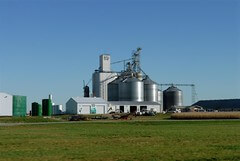Production of biofuels continues to be impacted by government policy around the globe. Emerson’s Douglas Morris, a member of the alternative energy and metals and mining industry teams, highlights recent developments in the U.S. and Brazilian ethanol markets.
One can assume that BP’s capital is better employed making sugar cane ethanol, but it’s also likely the result of the US ethanol market going through some rationalization.
A couple of weeks ago, Alan Novak wrote a piece about crude oil vs. ethanol in Brazil. Despite the uncertainty surrounding ethanol, there was a recent announcement by BP Biofuels stating they were investing $350M into sugar cane ethanol in Brazil with the goal of doubling the production at one of its plants. This comes on the heel of BP cancelling its Highlands cellulosic ethanol project in Florida, which was estimated to cost about $350M.
Now that there are no ethanol subsidies in place, projects must stand on their own merits so companies must take a closer look at the economics of each project. Marginal corn ethanol producers have already idled plants throughout the US.
Another factor in play is the Renewable Fuels Standard (RFS), which mandates production volumes for both corn based and cellulosic based production. The RFS, recently challenged by some state governments who want the corn ethanol mandate rescinded, and by refiners who question the cellulosic mandate, which currently makes them purchase gallons, which are not commercially available. As for now, the RFS challenges have been unsuccessful, but there is reason to think that challenges will continue. All this uncertainty makes ethanol investments in the US a bit dicey.
Once more regulatory certainty for biofuels takes hold; it is likely that BP will reassess the US market, as it remains the world’s largest ethanol consumer. Also, from a strategic standpoint, oil majors remain focused on global biofuel opportunities so targeted investments will continue. Expect BP, along with Royal Dutch Shell, who are two leaders investing in biofuels, to lead the way.


